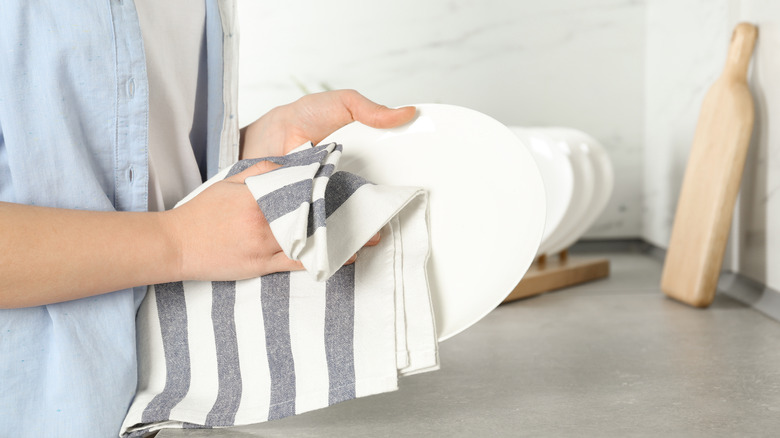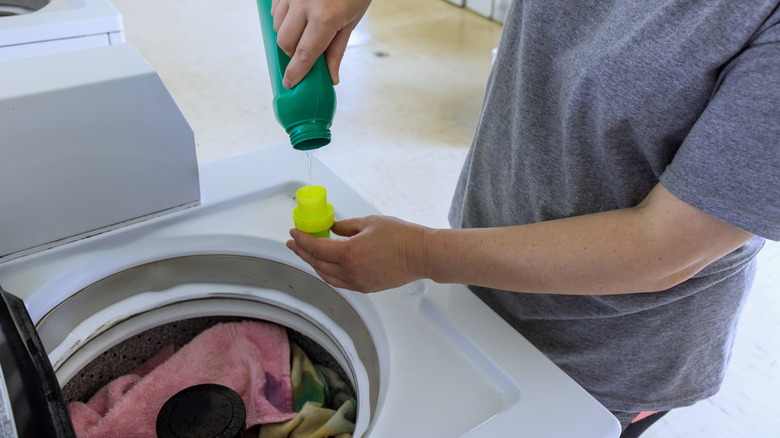Here's How Often You Should Really Be Washing Your Kitchen Towels
Between food prep and cooking, a kitchen can be one of the germiest places in your home, and there's also other sneaky ways you might be bringing germs into your kitchen to consider, too. Keeping counters, common surfaces, and dishes clean are all paramount to reducing illness, and you may already know that sponges can harbor millions of bacteria and require once-weekly cleanings at minimum. Like sponges, kitchen towels can be sources of potentially harmful bacteria. For this reason, it's important to change out kitchen towels every day, and possibly after each use to help keep you and your family healthy.
A kitchen towel may be used for drying your hands and dishes after washing. In theory, if your hands and dishes are clean, then a towel might be clean as well. This is actually far from the truth, though. The problem is there's no guarantee that a kitchen towel will be kept completely germ-free despite all your efforts to wash your hands thoroughly and to scrub dishes with soap and water. To make matters worse, it's possible to absentmindedly touch these towels with dirty hands, and you might even use these items to clean up seemingly harmless spills. Once bacteria gets transferred to your kitchen towels, it can grow exponentially and possibly cause illness. This is especially the case if the towel comes into contact with any raw foods or surfaces that had food on them, such as your kitchen counters.
Best practices for keeping your kitchen towels clean
As a rule of thumb, you should remove all towels and cloths from your kitchen at the end of each day and swap them out for clean ones. This should be more frequent than how often you should be changing out your bathroom hand towels. However, this guideline is really the bare minimum, and the exact frequency for washing your kitchen towels depends on how you use them. Any towel that comes into contact with raw meats and other raw foods should be washed right away. The same goes with any towels used to wipe down surfaces, such as your kitchen table, cooktop, or counter. The bottom line? If you're not sure whether a kitchen towel is safe to use, err on the side of caution and grab a clean one. Any towel that is damp or smells odd should also be replaced.
When washing your kitchen towels, it's best to launder them in hot water and to dry them on the highest setting possible. Make sure the towels are completely dry after laundering before bringing them back into the kitchen. Following these steps and avoiding the mistakes everyone makes while washing their towels can help ensure that any germs are killed and that the towels will be safe again. Aside from reusing the same kitchen towel day after day, you might also reconsider any other unhealthy related habits. For example, it's a good rule of thumb to swap out towels every time you dry any dishes. Using disposable paper towels to clean up messes is another possible safeguard to help prevent the transfer of germs.

